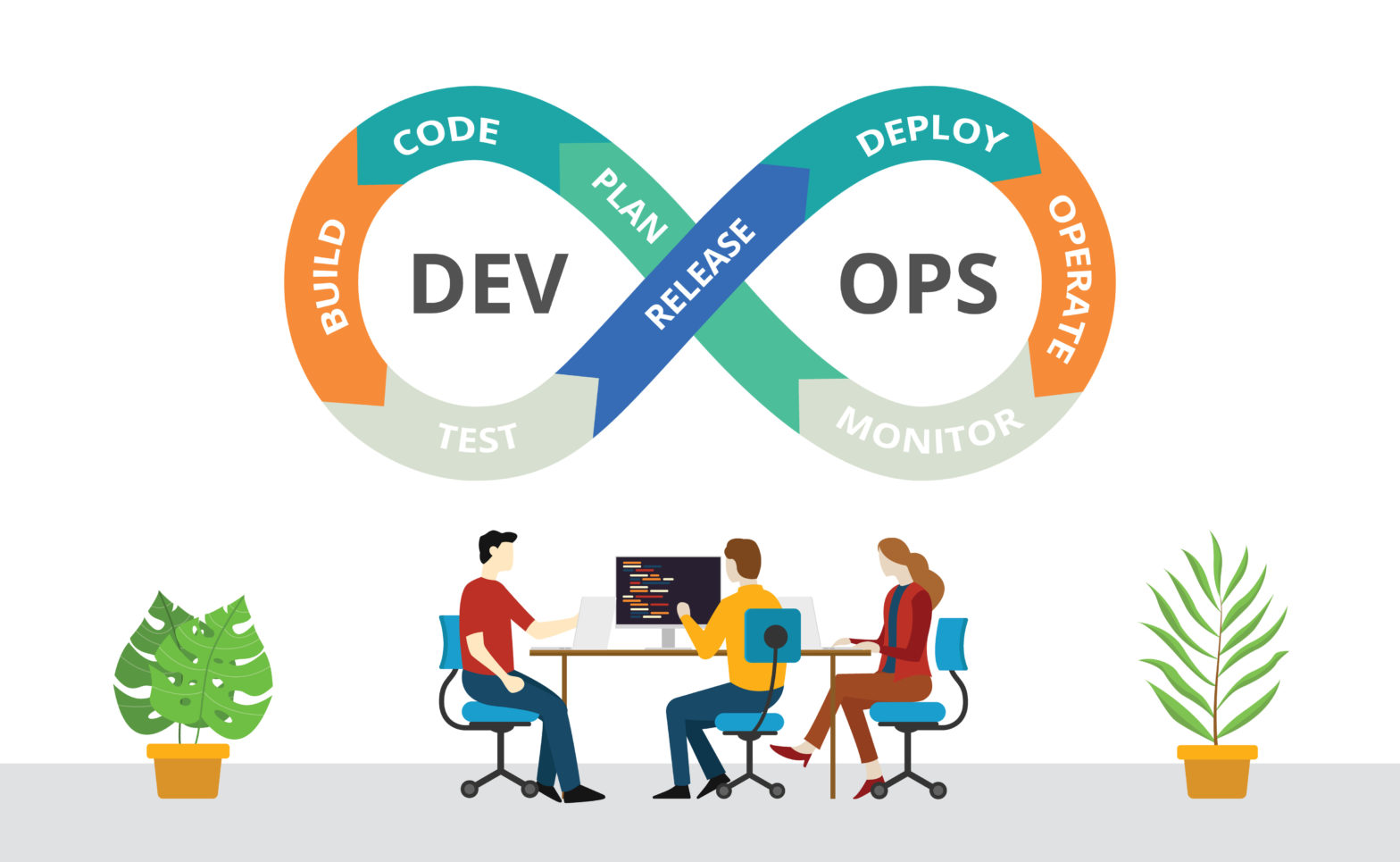More and more businesses are adopting DevOps and learning how it streamlines product development. Trends in technology are common, and there are a few exciting DevOps trends for 2021.
DevOps, the integration of development and operations, is fast becoming adopted by many businesses. With the ability to implement continuous integration and continuous delivery (CI/CD), the entire development process becomes streamlined. Updates can happen immediately, without waiting for a full team conference call. New products can be deployed and maintained faster, which keeps customers happy because the products they use continuously function like they are supposed to. As the adoption of DevOps continues to rise, the trends in developments and uses changes. In 2021, it’s no different, and it’s important to recognize DevOps trends and understand how they can benefit your business.
Before a business can adopt DevOps, it must undergo digital transformation. Digital transformation involves modernization of analogue systems and processes to digital, and typically involves cloud migration. DevOps without the cloud is significantly less valuable. Once your business has been appropriately set up to support the adoption of DevOps, it’s time to see what the trends are and if they can benefit your business. In 2021, there are a couple of trends to watch.
Businesses will likely see trends around reusable actions and reusable infrastructure as code. DevOps, which once was more a combination of point and click forms and scripts, is now largely coded, but many times the same commands and actions are coded over and over. It makes for inefficient code that can be difficult to work with, so it’s likely that businesses will see the open-source modularization of DevOps and infrastructure as code, similar to how package managers work across most programming languages.
Another trend will be that we start to see in DevOps is infrastructure procedures that are lists of imports, with some overwrites or configurations, followed by one or two custom commands for actual implementation. This again echoes modern coding of simple tasks with open source libraries. GitHub is already moving this direction with actions, containers and cloud infrastructure scripting are moving this direction as well.
Infrastructure trends in DevOps really change the game. Especially should they become open-source because it gives smaller businesses an opportunity to integrate DevOps without having to start from scratch. Although it is important to remember that all open-sourced code, no matter where it comes from or what it’s use is, should be reviewed for security prior to use and implementation. We’ve learned over the last year that open-source repositories can be a haven for threat actors, so reviewing that code is crucial.
The world of DevOps is on the verge of exploding. It’s on a similar path that modern languages and Linux took, and the user-base is essentially the same. There’s no reason to think that the path will deviate from its current course.
DevOps is essential for every business, but don’t make these mistakes when adopting it. Instead, hire an expert. Consult someone who specializes in this area, especially if you are a small or medium-sized business with a small IT team. When it comes to technology projects like digital transformation, adopting DevOps, cloud migration or anything similar, it is always best to bring in outside help. A third-party who has advised other companies on the same difficult problems. Bringing in an expert also means your team is free to conduct business as usual, so you’re not losing productivity or efficiency by having your own team do it.
Businesses can no longer afford to wait or to push technology projects to the backburner. Technology is now at the forefront of everyone’s minds, businesses and consumers alike, thanks to the pandemic. If your business isn’t using technology properly, it will lose its competitive edge. Stay up-to-date, modernize, increase productivity and efficiency, adopt DevOps. Your ultimate goal is to stay in business, and technology paves that path.

